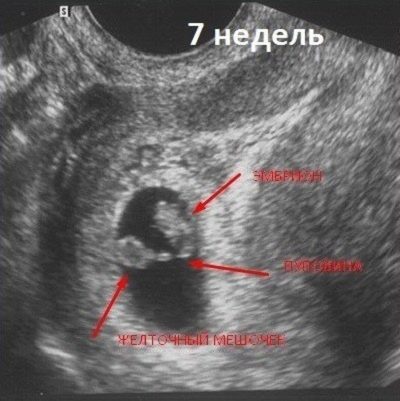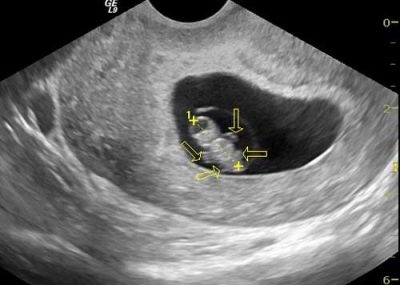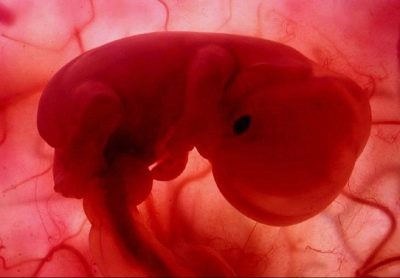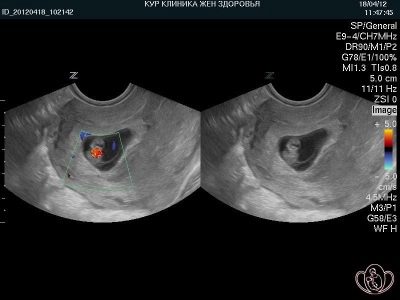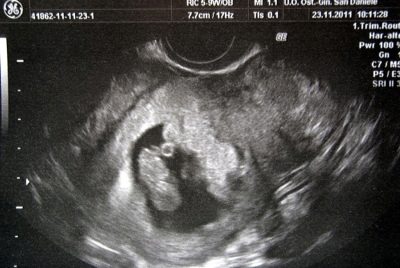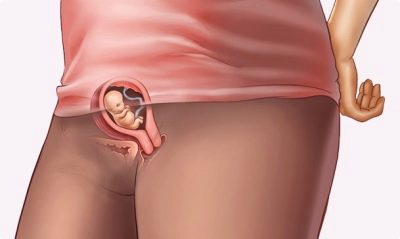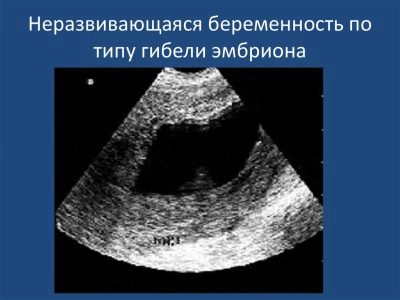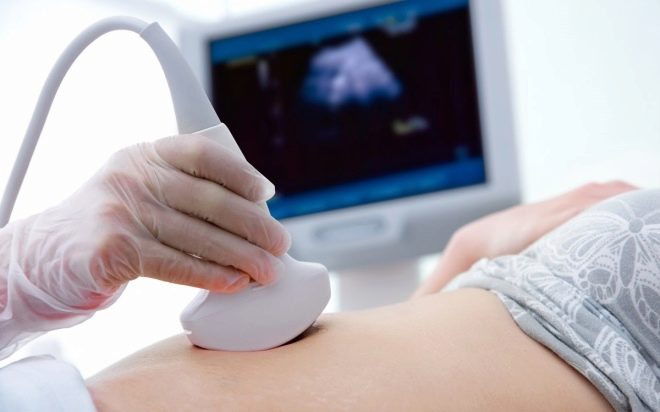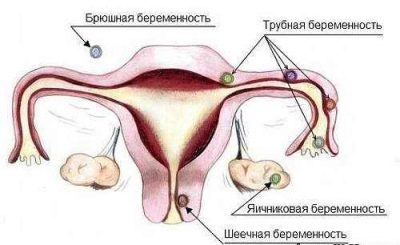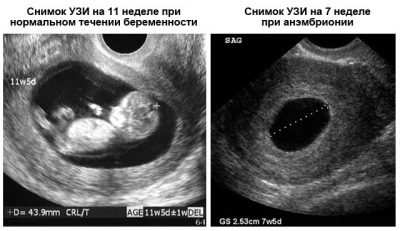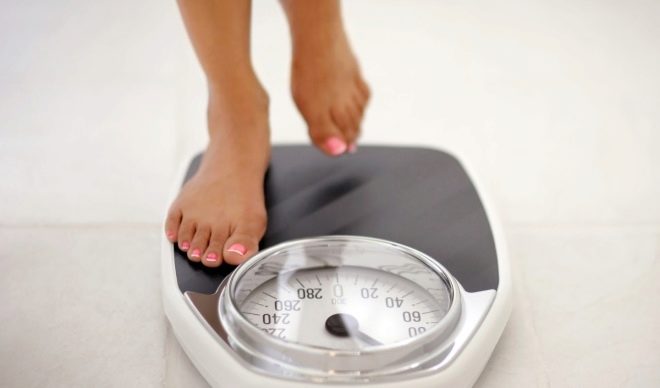7 week of pregnancy: what happens to the fetus and the expectant mother?
7 week of pregnancy for many issued is not the easiest. There can already be no doubt - the pregnancy has come, this fact is confirmed. Now the everyday life of the future mother begins to change rapidly every day. In more detail about what is happening on this period with the baby and the woman, we will tell in this article.
How many months is it
7 week of pregnancy is obstetric term. Doctors for convenience use a special system of calculation - they are counting from the first day of the last menstruation. Thus, the actual period differs from it by about 2 weeks, because in the first 14 days of the cycle it is impossible to become pregnant due to the immaturity of the egg. 7 weeks by obstetric standards is 5 weeks from conception.
The embryonic period is about five weeks, if ovulation occurred on time, in the middle of the cycle.
This period may be slightly less if ovulation was late. 6-7 obstetric week, which will be discussed, are almost two obstetric or lunar months of pregnancy (they last 4 weeks each). In a more conventional calendar time began second month of pregnancy. Three weeks have already passed since the start of the delay. The baby is now not just not dividing cells, but a full-fledged embryo, and in five weeks in the womb he accomplished much.
Embryo development
The crumb is still officially considered an embryo, but in fact this week begins with a new stage for him - the neo-fetal period, which will last another 2 weeks. After 9 weeks, babies are officially called fruits. These 14 days between 7 and 9 weeks are considered a transitional period from the embryo stage to the fetus. The most critical period in which the prognoses about the life of the child and the continuation of the pregnancy no one does, ends.
Since the seventh week, there are less and less threats to the development and vital activity of the baby, his chances of surviving and being born into this world are increasing. Many doctors now do not call babies embryos and speak of them as fruits.
Height and weight
The baby is growing, and so fast that its parameters change daily. All the energy, all the forces of the crumbs and the mother's body are now thrown exactly on growth. This week at its very beginning, the growth of embryos averages about 2 centimeters, but by the end of the week it can reach 5 centimeters. The weight of the crumbs this week is less than a gram, the baby will begin to gain mass later.
To visualize how your baby looks now, it is worth remembering how white beans look medium in size - that’s what a child is now.
Nervous system
The biggest part of the body this week is the head. And this is not just because the brain is undergoing the most intensive development at this time. It produces five bubbles - cavities that will correspond to each of the brain. The brain substance “adds” in weight and volume, the brain is divided into two hemispheres. The neural tube is not yet closed, the formation of the nervous system.
This week begins the development of nerve fibers that will connect the "control centers" - the central nervous system and all internal organs. It depends on how favorable the conditions in which the baby develops at the 7th obstetric week, how well its nervous system will be formed and will work.
Some congenital chromosomal defects, if they have a fetus, do not allow the brain to form at this time, such babies die. At this time, a woman should remember that it should not be exposed to radiation, toxins, most medications, since all this can totally and irreparably affect the formation of the brain of the child.
Internal organs
This week begins to form vision. The anterior cerebral bladder begins to bulge somewhat forward. It is he who will give rise to the optic nerves and retina. A woman should remember that at week 7 she should not be deficient in vitamin A and folic acidnecessary for the proper development of the organs of vision and the nervous system of the crumbs.
The biggest changes in this period occur in the kid's digestive system. The gut, while the only one, is divided into the main sections, which will soon be a full-fledged esophagus, stomach and pharynx. The median part of the intestine begins to go in the direction of the umbilical cord. The back of the intestine these days is complicated, forming the urogenital sinus and rectum. Bile ducts appear, an appendix is laid, and the pancreas will begin to produce its first insulin this week.
Respiratory organs are represented only by the trachea. But the lungs and bronchi are already laying and growing. But a big "breakthrough" is planned in the cardiovascular system.
The heart becomes four-chamber; now it can pump blood throughout the body of the crumbs. The network of blood vessels expands, grows, develop large blood vessels.
Floor
At week 7, so-called sex rollers begin to form in the primary kidney. They are the germs of the genital glands. In place of the external genital organs, only the genital tubercle is formed, which looks completely identical in boys and girls.
Gender is predetermined from the moment of conception. The chromosomes in the last pair coincided either as XX, and then a little princess was destined to appear, or like XY, and then a boy would be born. However, while it is impossible to determine the sex by any methods. The gonads of the fetus do not produce sex hormones yet, the external genital organs have not been formed.
Appearance
Every day a little creature inside the mother’s womb will increasingly resemble a human being. In the meantime, the crumb looks like an alien. The rudiments of eyes are set on the sides of the large head. Every day they will gradually "move out" to the center of the face - where the formation of the rudiments of the nose has already begun.
This week, the inner ear is formed and pronounced dots with cartilage tissue “mark” the places where the auricles are destined to be. At week 7, the rudiments of milk teeth are laid and jaws begin to form.
The spinal column grows, this week the crumbs appear the first neck bend. The baby begins to move - while only he can only unbend and bend like a small caterpillar. On the handles there appear shovel-like patterns of the fingers and fingers, the nails are not yet formed.
The embryonic tail shortens approximately twice, in two weeks it will disappear completely, turning into a tailbone familiar to each of us.
The legs of the fetus develop somewhat more slowly than the handles, until the feet are formed on them, but the drop-like rudiments have appeared. This is not the most important thing now. All the forces of the baby and mother this week are sent to establish communication - formed uteroplacental blood flow.
The still young placenta is no more than 1 centimeter thick — it has yet to develop long enough before taking on all the functions of nutrition and child protection.
What can a baby?
At week 7, the baby learns an interesting movement - he learns to move his hands and trains on his own wrists. It is these flexions and extensions of the upper extremities that are essentially the very first moves with the hands. By the end of the week movement will be more confident.
What can show ultrasound?
Ultrasound scanning, so beloved by all pregnant women, is not included in the number of recommended examinations at this time. If the well-being of a woman who is preparing to become a mother is good, nothing bothers her, doesn’t hurt and doesn’t cause concern, you shouldn’t do an ultrasound. Such diagnostics may be recommended in the event that if there is a need to clarify whether there is a pregnancy at all, whether it is uterine, whether there is a threat of interruption and other complications.
Often, at 7 weeks, ultrasounds are done to expectant mothers, whose pregnancy became possible after using assisted reproductive technologies, for example, after IVF or intrauterine insemination, to clarify whether the baby is viable, whether he is one or two or three.
If you suddenly have to visit the ultrasound room at the 7th week, then you should not expect that there will be a lot of information.
The doctor at this time does not determine the sex, does not measure individual parameters, but merely specifies how many babies develop, fixes their viability (heartbeat, movement sometimes), and also relates the parameters of the ovum to the obstetric period. 7 obstetric weeks are characterized by the following sizes:
The average internal diameter of the ovum on the 7th week of pregnancy:
The diameter of the ovum (SVD, mm) | Matching gestational age |
12 | 6 weeks + 1 day |
13 | 6 weeks + 2 days |
14 | 6 weeks + 3 days |
15 | 6 weeks + 4 days |
16-17 | 6 weeks + 5 days |
17-18 | 6 weeks + 6 days |
18-19 | 7 weeks exactly |
The shape of the ovum will also tell you a lot: even, oval or round - this is a variant of the norm, and a deformed egg with uneven fuzzy contours will surely alert the diagnostician.
To clarify the date, the size of the fetus can be measured by the coccyx-parietal, although it is still so small that not every ultrasound machine is able to fix it. If you are lucky to do ultrasound on a good scanner with high resolutions, the CTE for this period is within the following standards.
Kopchiko-parietal size on the 7th week of pregnancy:
KTR, mm | What corresponds to the term |
6,5-7 | 6 weeks + 2 days |
7 | 6 weeks + 3 days |
8 | 6 weeks + 4 days |
8,5 | 6 weeks + 5 days |
9 | 6 weeks + 6 days |
10 | 7 weeks exactly |
The yolk sac, which has not yet “transferred” the placenta of its responsibilities for feeding the baby, is now determined within 4-4.5 mm. The heartbeat of the fetus is in the range of 129-146 beats per minute. Heart rate may be different from this range, but not to exceed 180 beats per minute and not fall below 110.
On the monitor of the ultrasound scanner, the woman will not see her baby in all its glory. Most likely, the doctor will be able to show the expectant mother only a dark dot - the ovum and the segment between two points in the dark cavity - CTE.
What does the future mother feel?
Everything that is happening in the future mother's body now takes place under the influence of hormonal adjustment. Immediately after fertilization, the production of progesterone hormone intensified, the task of which is to preserve the baby, prevent the uterus from straining and push the crumb out of its cavity, and also not allow the maternal immunity to "crack down" the embryo, which is only half of the mother's name.
In the seventh week, the symptoms and signs of early pregnancy no longer leave any doubt. Under the influence of hormones, taste preferences have changed.
Progesterone increases the appetite, because its "duties" also include the creation of fat reserves as an important energy reserve for the child and his mother.
Because of the raging hormones, the woman becomes emotionally unstable. Her mood changes from fun to tears in minutes. A woman feels unprotected, vulnerable, vulnerable, she can begin to perceive films and photos that are too sentimental.
Since all the changes that occur with the baby and in the mother's body, require huge energy costs, a woman right in the morning after waking up can begin to feel tired, tired. Dizziness, headaches, weakness, nausea are not excluded.
As the uteroplacental blood flow begins to form, the concentration of the hormone hCG increases substantially, which leads to additional symptoms of indisposition.
Hormonal changes can cause evening rises in temperature to subfebrile values (above 37.0 degrees). Often, women perceive this as symptoms of an incipient cold, but, apart from mild chills, sensations of "burning cheeks" other signs of the disease are not observed. In the mornings there is no trace of temperature.
The size of the uterus has increased by half. Now it can be compared with the size of a goose egg or an orange. The growth of the uterus is not yet felt by a woman, it has not gone beyond the limits of the pelvis, the feeling of heaviness in the lower abdomen does not arise yet.
Changes in the body of a woman
Even if the daily work of a woman does not require her to concentrate mental and physical strength, a decrease in performance at this time is obvious. It is more difficult for a woman to concentrate; she is scattered, drowsy. This condition is considered perfectly normal for early gestational age.
If a woman’s work is connected with high-precision production, then it makes sense to temporarily move to another position. If the work involves exposure to harmful substances, varnishes and paints, poisons, This should be made known to the employer and a move to easier and safer work — such an opportunity for pregnant women is provided for by labor legislation.
Blood pressure this week may be below normal, and until a normal uteroplacental communication has been established, this is normal. Toxicosis, if it begins this week, manifests itself in all its "glory."
Many women, speaking of toxicosis, imply nausea, but it is considered quite normal, and vomiting, especially repeated, symptoms that require medical advice.
Severe repeated vomiting may be accompanied by dehydration, which is dangerous for both the mother and her baby. Therefore, toxicosis, accompanied by severe vomiting, which is repeated not only in the mornings, but also during the day, necessarily requires a medical correction, which can be provided to a woman in the gynecology department of a hospital, where she will receive a referral.
The skin of a woman can not respond to hormonal changes. This week, under the action of hCG, it becomes more friable, and therefore acne, rashes, dry skin fragments that itch and itch may appear. Dandruff may appear, although it was not there before. Some women complain of dryness in the vagina. All this is a variation of the maternal organism’s response to hormonal changes.
A woman's chest becomes quite painful. It quickly grows and increases in size due to the proliferation of glandular tissue, which is activated under the influence of progesterone. Nipples and mugs around them can darken, and not always evenly - sometimes pigmentation appears stained with a more intense color. You should not be afraid of it. A comfortable support bra will help reduce chest pain.
The intestines and digestive organs of a woman under the action of progesterone may begin to work differently, and therefore, in the 7th week, increased gas formation, diarrhea, constipation, and heartburn may occur.
In order to minimize discomfort and symptoms, one should start eating right now, so that the baby does not have a deficit or excess of certain substances, vitamins, minerals, and the mother’s body works more smoothly. Proper nutrition helps often at the same time to solve the problem of toxemia.
Pains
Small nagging pains on the sides of the uterus, as well as in the lumbar region, are not considered pathological. The point is in the ligaments holding the uterus. The main reproductive female organ is growing every minute, this dynamic does not stop, the ligaments are forced to adapt to this growth. This causes slight aching pain. Gradually, the woman gets used to them, they cease to be perceived as a cause for concern.
Other abdominal pains cannot be considered normal at week 7. The first dangerous cramping, severe pain, in which the uterus comes in tone. Such a pain syndrome may indicate a threatened abortion, because at this time such risks are still very high.
Pains at threat remind pains at monthly, only they are slightly stronger.
If the lumbar region is sore, the back hurts, it gives to the rectum, the pain intensifies, it is important to consult a doctor, because in most cases, if the doctor intervenes in time, the pregnancy can be preserved and brought to a proper time, then a healthy healthy baby is born.
If you have a headache at week 7, this may be due to a drop in blood pressure. It is important to control it daily, especially if a woman had a certain tendency to hypertension or hypotension before the onset of pregnancy. This must be reported to the doctor in the antenatal clinic, he will teach to measure the pressure on both hands and keep a pregnancy diary. Pressure drops are fraught with the onset of preeclampsia - a condition extremely dangerous for the mother and fetus.
There is no medicine for chest pains. They should simply endure, because by the beginning of the second trimester, they usually subside. The active growth of glandular tissue always falls on the first third of pregnancy, as conceived by nature.
In general, with the expectant mother at this obstetric week various changes can occur, accompanied by pain. If a woman had any chronic diseases earlier, right now they can become aggravated and make themselves felt with painful sensations.
Allotment
Normal for this period are considered discharge, having a light color or milky color, odorless or with a slight sour smell. Any other discharge for this period will be symptoms suggesting that the pregnancy proceeds with complications.
The most dangerous are bloody discharge. Blood in any form - from pink, cream and brown discharge to open clean bleeding can speak about the threat of interruption, spontaneous miscarriage, placental abruption or the ovum.
If there is a bloody “daub” or a thin, more abundant than just spotting, blood has gone, the woman should immediately call the “ambulance” and go to the hospital.
There are chances to save the child, but they will rapidly decrease if the woman stays at home instead of seeking emergency medical care.
White thick yeast-like discharge, heterogeneous, with a pronounced sour smell, accompanied by itching and discomfort in the perineum and anus, can speak about the development of thrush. This ailment is directly related to the changed hormonal background.
In this case, be sure to undergo treatment, the choice of the drug should make a doctorbecause not all antifungal and antimicrobial agents are allowed for women in an “interesting position”.
Green, dark gray, brown, unspecified color discharge with an unpleasant odor, accompanied by itching, burning, usually are a manifestation of genital infections, inflammatory diseases of the genital organs. They must be treated with the specific pathogen in order to avoid intrauterine infection of the fetus.
Possible problems
Since the 7th obstetric week is still a rather short period of time, the probability of developing various complications remains high, despite the fact that the main threats to the life of the baby have passed.
What problems most expectant mothers are facing this week will be discussed in more detail.
Retrochorial hematoma
Such a diagnosis can be heard every fourth pregnant. Hematoma is formed in the space between the fetal membrane and chorion, if there was a detachment. The space is filled with blood, and this area is determined by ultrasound.
In most cases, a woman at the 7th week will not learn about the hematoma in the ultrasound diagnostic room, but according to the first symptoms, which cause her to see a doctor - by the appearance of a brown or pink daub, a slight pulling pain. Despite the frightening symptoms, in most cases, pregnancy can be maintained.
A hematoma may occur because a woman overloads herself physically. - Raises the weight, professionally involved in sports. Often, retrochorial hematoma is a consequence of a “jump” in hormonal balance, an echo of inflammatory diseases of the reproductive system organs of a woman.
Pathology is quite often fixed in pregnant women who have not parted with bad habits - smoking and alcohol, as well as in women who have problems with blood clotting, exposed to strong stress.
Discharge with hematoma is not a mandatory sign. Sometimes the pathology proceeds without symptoms at all. Brown "daub" with a confirmed pathology is a successful sign, meaning that the blood from the hematoma gradually moves away.
If a woman has scarlet blood, and the pain has increased, it is likely that the hematoma has increased in size and is a great danger to the life of the child.
Favorable predictions are usually about hematoma, which does not exceed a quarter of the area of the ovum. If the hemorrhage is larger, it all depends on the location and exact size of the hematoma. The treatment is aimed at stopping bleeding, relaxation of the uterine muscles with the help of antispasmodic drugs.
Undeveloped pregnancy
A missed or undeveloped pregnancy is called such a pregnancy in which the fetus stopped progressing and died, but continues to remain in the uterus. therefore pathology is sometimes called a failed miscarriage.
There are a lot of reasons why a baby stops developing, and not all of them have been thoroughly studied by medicine and science. Among the most likely specialists are chromosomal pathologies of the fetus. If the baby, at conception, “inherited” extra chromosomes or they are lacking, if it has a mutated gene that hinders the development and full growth, then the death of the child is inevitable.
In addition to genetic prerequisites, pregnancy can stop developing if toxins, certain medications, poisons, radioactive radiation, and infections affect the fetus. Often the true cause of the death of the crumbs at such an early date remains undetected.
Detect missed abortion at 7 weeks can be basically only on ultrasound, which will show the lack of fetal heartbeat and a significant lag from the norms in size.
This week, many women go to a consultation for registration.Suspicion of missed abortion may appear at the obstetrician-gynecologist, who, at the first appeal, conducts a manual examination of the uterus and cervix on the gynecological chair - the uterus will be less than the size laid down.
If the pregnancy has stopped already 2-4 weeks ago, then it is now clear symptoms can appear - a spotting brown discharge, indicating the beginning of the rejection of the dead ovum.
To guard the pregnant should not pain, pain does not accompany fetal death, and the sudden disappearance of pain and signs of pregnancy. If the chest was sick, nauseous, and then all the symptoms abruptly disappeared, the chest stopped hurting, this may indicate that the baby "froze". This can be determined by ultrasound diagnostics.
Ectopic pregnancy
Ectopic called pregnancy, which occurs outside the place of nature - the uterus. A fetal egg could be implanted for 6-8 days after fertilization, not into the uterine cavity, but to be fixed in the tube, in the cervix, outside the uterus. Unfortunately, such a baby is doomed to death, but in addition to this there is a great danger to the life of a woman.
If the grown fetus leads to rupture of the tube, then the woman can begin massive internal bleeding, which can be fatal.
Some women who have not done an ultrasound before 7 weeks may be in the dark, because all the signs of normal pregnancy will manifest themselves - nausea, dizziness, delayed menstruation, changes in smell, chest pain. At this time, a terrible truth may open to a woman when registering at a antenatal clinic.
Manual examination at the gynecological chair will show the size of the uterus that does not meet the obstetric period, in connection with which the woman will urgently be sent to an ultrasound, where it turns out that there is no fetal egg in the uterus.
Depending on where the fetus is fixed, the symptoms of ectopic pregnancy by the 7th week may already manifest themselves. This abdominal pain, fever, intestinal disorders, vomiting.
With the appearance of sharp cutting pain, loss of consciousness, rupture of the fallopian tube is possible, a woman should at any cost be taken to hospital as soon as possible.
If a rupture did not occur, and an ectopic pregnancy was detected during a routine examination with an ultrasound, then the probability of keeping a woman of a part of the reproductive system is quite high. Laparoscopic operation to extract the fetus from the tube allows you to later get pregnant and quite safely carry the child. Unfavorable is considered a cervical pregnancy, in which usually have to remove the entire uterus completely.
Anembrionia
Approximately 15% of pregnant women are diagnosed with the absence of an embryo inside the ovum - anembrionia. In earlier periods, such a diagnosis is often mistakenly put, and already the next ultrasound shows that the baby is developing, his heart is beating. But at the 7th obstetric week, errors in diagnosis are practically excluded - the crumb is already big enough, it is almost impossible not to see it and not to hear the heartbeat.
A fruit egg grows during anembryonia, its size increases, but there is no fruit in it. Experts believe that the cause of the pathology of the early embryonic period - when the implantation took place, but the embryo inside the ovum died.
Chromosomal genetic pathologies are called the most likely cause, the impact of negative factors varies from hormonal status drop to stress, drugs, poor ecology, nicotine and alcohol, drugs, and radiation. The causes of the death of the embryo at the initial stage of its development usually cannot be established.
If the absence of an embryo is detected this week, it usually causes serious psychological trauma to the woman, especially if the pregnancy is desired and the child is long-awaited.Such mothers up to 7 weeks usually have time to choose a name, look after the crib and stroller, decide on the repair in the nursery, so the news that there is no child can provoke a serious nervous breakdown in them. A woman may need expert help from a psychiatrist or psychotherapist.
Consoles one thing - after anembryonia, most couples become pregnant quite successfully and bear and give birth to a healthy baby without any problems. Cases of re-embolism - a rarity.
Risk of miscarriage
This diagnosis in women's clinics sounds more often than anyone else. According to medical statistics, about 70% of expectant mothers are pregnant with the threat of termination, most of them are diagnosed in the early stages. The reasons for which the risk of pregnancy at any time to interrupt, can be very diverse, but most of the doctors can cope with the problem and help the woman overcome a difficult period, while maintaining the pregnancy.
Of course, no one will guarantee anything. Sometimes, despite the best efforts of doctors, miscarriage still occurs. This usually happens if the child was initially doomed to death due to chromosomal abnormalities, total defects that prevent him from developing normally. Unfortunately, it is possible to establish this only posthumously - fetal tissue samples are subject to genetic analysis, which shows the presence of chromosomal abnormalities.
Miscarriage threatens women over the age of 35, in expectant mothers who are over 40, the likelihood of an adverse outcome is about 40%. In the risk group, women who have bad habits, work under constant stress, take medicines uncontrollably, abuse coffee or strong tea, and future mothers who are experiencing strong physical exertion.
Often miscarriages are familiar - they are repeated for about the same period. If the previous pregnancy ended in miscarriage at week 7, registration should be made as early as possible. to meet the “critical” week in the hospital under the round-the-clock supervision of doctors.
The likelihood of threatening women who have had abortions, including medical abortion, is increasing. After IVF miscarriage at 6-7 weeks and a little later, about 25% of all pregnancies end. And in women with immunological Rh-conflict with the fetus, the probability of miscarriage is close to 60%.
A threatening condition usually manifests pulling pains or a feeling of "petrification" of the lower abdomen, abnormal secretions - bloody, watery, succinic.
Cold, colds
Progesterone, which helps preserve the pregnancy, weakens the immunity of the expectant mother. That is why in the early stages various viral and non-infectious diseases occur so often. If the flu or ARVI started at week 7, it can be very dangerous for a baby, because in his body now the most important processes of the formation of the brain occur, and the high temperature increases the probability of miscarriage tenfold.
The situation is complicated by the fact that a woman cannot use the habitual drugs for her treatment, which she used in similar cases before pregnancy. many drugs are now contraindicated because they have a teratogenic effect (negatively affect the development of the fetus).
Call your doctor at the first sign of a viral infection or flu. He will be able to suggest which drugs can be used, which folk methods to alleviate the condition a woman can use without risking harm to the child.
An infectious disease in such a short period as the seventh week of pregnancy does not in all cases lead to irreparable consequences, much more dangerous may be the wrong treatment, to which the woman will resort without the permission and approval of the treating doctor.
For a cold, a woman can take quite physiological manifestations of early pregnancy, for example, a runny nose. A stuffy nose in women at week 7 is often not due to hypothermia or a viral infection, but because of the action of progesterone on the mucous membranes. Under the action of the hormone in the tissues begins to accumulate fluid, which leads to rhinitis.
If nasal congestion and difficulty breathing are not accompanied by additional symptoms of an acute respiratory disease or ARVI, there is nothing to worry about. Such a runny nose does not need treatment and does not harm the child.
Analyzes and surveys
Considering that most of the complications of pregnancy in such early periods are without symptoms, it is advisable for a woman to get into the clinic for antenatal care as soon as possible. It is better to do this at 5-6 weeks of pregnancy, but the seventh week is the best for a complete and detailed examination of the health of the future mother and baby.
When you visit a consultation that can be scheduled exactly this week, you should take your passport and medical insurance policy with you. If the woman has already visited the ultrasound on her own initiative, then you should take the doctor's opinion with you.
At the reception, the doctor will compile a detailed obstetric history of the woman, assess all risk factors, conduct a manual gynecological examination and issue directions for tests and examinations that are required when registering. Such analyzes include:
- general blood and urine tests;
- blood chemistry;
- blood test for infections, antibodies to TORCH infections;
- blood tests for HIV and syphilis, for hepatitis B and C;
- scraping from the cervix and smear vaginal secretions on the microflora;
- colposcopy;
- coagulogram (blood test for the determination of clotting factors).
Additionally, according to individual indications, a woman may be assigned other diagnostic tests. If there is a need to clarify the gestational age, an ultrasound scan is performed, if a multiple pregnancy is suspected, a blood test for hCG and ultrasound is done, tests for the content of hormones - progesterone, testosterone, thyroid gland hormones can be recommended.
When registering a woman is recommended to visit other doctors, who will give their conclusions about the likelihood of complications from internal organs and systems - a cardiologist, a therapist, a dentist, a gastroenterologist, an ophthalmologist, and an otolaryngologist.
If a woman has chronic diseases, the appropriate doctor should give written recommendations for the obstetrician-gynecologist about the features of this pregnancy, taking into account the disease.
Recommendations to the future mother
To reduce the risk of complications in the seventh obstetric week will help simple and uncomplicated safety measures that are desirable for all pregnant women.
Nutrition
If it is 7 weeks, it's time to think about how to establish proper nutrition, which will help the baby to get all the necessary nutrients, and it is easier for the mother to endure all the “interesting situation”. Whatever diet is followed by a woman before pregnancy, it now makes sense to make adjustments to it.
To eat a woman should be fractional - 5-6 times a day. Portions should be smaller in volume, but more complete in composition and energy value.
It should completely abandon carbonated beverages, mayonnaise, ketchup, smoked meats, sausages and sausages. Salt intake is best reduced to 5 grams per day - this will help avoid the likelihood of developing gestosis with edema.
It is also better to refuse factory sweets, chocolate, jam and jam, preferring sweet fruits and natural juices.
The diet should be fresh vegetables, rich in fiber, which not only supply the mother's body with vitamins, but also contribute to the normalization of stool, prevent the occurrence of constipation.
Excluded fatty foods - lard, pork, lamb, large amounts of butter, margarine. To a minimum it is desirable to reduce the consumption of bread, especially baked from pastry or yeast dough. If a woman was previously fond of vegetarianism, now is the time to introduce meat - veal, beef, rabbit meat into your diet, and chicken - and turkey, because without animal protein, full development of the fetus is very difficult.
To withstand multiple meals, you should buy special food containers that allow a woman to take food with them to work or study. Be sure to observe and drinking mode - drink a day at least 1.5 liters of clean water.
Sex
If a woman has no complications, pain, or pathological discharge, if she is not at risk of miscarriage, then sex at week 7 is not only allowed, but recommended.
Full intimate life has a beneficial effect on the psychological state of the future mother. The stomach has not yet grown and does not interfere, movements are not limited, it is no longer necessary to protect oneself.
All this makes a woman more relaxed, she can get much more pleasure from lovemaking than before. It’s not worth worrying about the child - the intimate life of parents in no way harms his development, does not interfere with him.
Weight control
From this week you should start to control your weight. Many pregnant women acquire floor scales and at the 7th week they start keeping diaries of pregnancy, in which they indicate not only weight, but also basal temperature, as well as the level of blood pressure.
There is no need to weigh each day; it is enough to carry out one or two weighings (at the beginning and end of this obstetric week). You need to weigh yourself in the morning after the toilet, emptying the bladder and intestines, before breakfast.
A normal increase is now considered 100-300 grams per week. If a woman has toxemia, there may even be some weight loss.
A pathological increase is considered to be an increase above 0.8-1 kilograms per week. This must be reported to the doctor to prevent the development of dropsy of pregnant women - gestosis.
Travel and Flights
Travel, including air travel, at week 7 is not prohibited. The exceptions are cases of a clear threat of termination of pregnancy and miscarriages in the early periods in history, individual contraindications, which include, in particular, problems with blood vessels and the heart. Flights in this case are undesirable.
All pregnant women are not recommended to change climatic zones in the early stages. Acclimatization can be quite painful and dangerous from the point of view of the threat of abortion.
Vitamins
Independently assign yourself vitamins are not worth it. According to the results of the biochemical analysis of blood, the doctor will be able to judge with confidence which substances in the body of the future mother are not enough. On this basis, one or another vitamin preparation is prescribed.
At week 7, the need for vitamin A rises, since the baby's eyes are formed. Enough to enter into the diet foods rich in retinol, for example, fresh carrot salad or cod liver.
Lifestyle
A woman in week 7 must get enough sleep. It’s time to forget about work on the night shift, asking the management to change the future mother’s work schedule.
If there are no contraindications, you can and should be engaged in swimming, walking in the fresh air. Excessive physical activity should now be addressed. in any case, classes in power trainers in the gym are not clearly shown now.
Pregnant Reviews
Many pregnant women, who left reviews about their 7th week of pregnancy in special parental forums on the Internet, claim that it was this week that they first thought about changing their wardrobe, and started with ... shoes. It became uncomfortable to wear shoes and boots with high heels - legs get tired, and in the evening there are pains in the lower back and back. The consequences can be more serious, because the uterus with a modified center of gravity often comes in tone.
Therefore, many at this time have chosen for themselves shoes with flat soles or small platform heels.
Most women report increased appetite and sleep disturbances.
About what happens to the fetus and the future mother at 7 weeks of pregnancy, see the following video.




